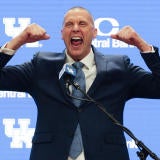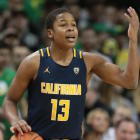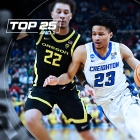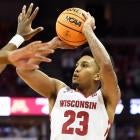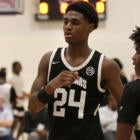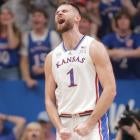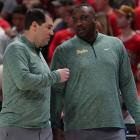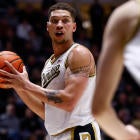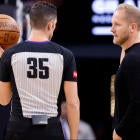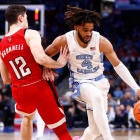Kansas coach Bill Self, who will be inducted into the Naismith Memorial Basketball Hall of Fame later this year, has decided he no longer wants to just recruit traditionally in order to win.
Self is going all-in on the transfer market.
He's far from alone in embracing this mindset -- Self's philosophical shift comes at a time when transfers are commonplace in college basketball.
Recruiting the best high school players in the nation has led to tremendous regular-season success for the Jayhawks. Few coaches have ever been as dominant from November through February the way Self has since he got to Kansas in 2003. He's been a top-tier tactician with big-time wins on the recruiting trail (he's regularly landed top-five prospects since getting to Kansas), which has helped him win an unprecedented 13 consecutive regular-season conference titles. Yet for all that dominance, something impalpable has failed him more times than not when it matters most: March.
Self has "only" one national title and two Final Fours despite getting to the NCAAs with a No. 1 or No. 2 seed in -- get this -- 10 of the past 11 seasons. In that regard, yes, he's underachieved. Making the Final Four 20 percent of the time as a top-seeded coach qualifies as a disappointment in the big picture. (If this were John Calipari's mark, you know we'd hear a lot more about it with him than we do with Self, because Calipari is now starting to get some heat for "only" winning one national title despite reeling in top-two recruiting classes every year of his UK tenure.)
Regardless of his March inconsistency, Self is still, undeniably, a top-five coach in college basketball. He's won 83 percent of his games and will probably win more than 1,000 times if he coaches college hoops into his his late 60s (Self is 54 years old and won 623 games). The dichotomy of that dominance vs. his March struggles is staggering. In light of this, and after falling short of another Final Four as a No. 1 seed last month, Self has aggressively pursued the transfer market and seemingly come up with a better haul than any other coach in the sport.
On Tuesday, Kansas announced three incoming transfers who will sit the 2017-18 season but be in uniform come November 2018: Former Memphis players, brothers Dedric and K.J. Lawson, and Cal freshman Charlie Moore. The additions are being lauded around the sport.

"We're excited about all three of these prospects," Self said in a statement. "They've all had successful starts to their college careers at different institutions. Certainly, the transfers became so attractive to us, in large part because we will have guys in our program who will be ready to contribute in a year. We could lose multiple guys next year, so I think this is a great fit for the University of Kansas. Not only will we get better down the road but this will certainly make us better in practice next year."
Dedric Lawson has been a statistical monster the past two years. Moore was the most overlooked freshman this past season, in part because it was the best freshman class in a decade, but also because Cal lacked relevance in the top-heavy Pac-12. It's a scary proposition for the rest of the Big 12, because there's little to suggest Kansas won't win the Big 12 for a 14th, 15th and 16th straight time in the coming three seasons.
But here's how Self has approach transfers since arriving at Kansas. He had three total four-year college players in his first 10 years. Now he'll have six of his 13 scholarship spots next season filled by players who he did not recruit out of high school. (Information via Kansas Athletics.)
Malik Newman was a top-10 prospect in the eyes of many when he came out of high school in 2015. Newman left after an up-and-down freshman year at Mississippi State. He could be a breakout player for the Jayhawks next season. Dedric Lawson (19.2 ppg, 9.9 rpg) was first-team All-AAC with the Tigers last season. K.J. Lawson (12.3 ppg, 8.1 rpg) was the rookie of the year in the American -- a year after Dedric earned that honor.
Moore averaged 12.0 points and 3.5 assist with Cal. He was a top-75, four-star player in the class of 2016.
"We think after a year sitting out that he'll be much like Malik Newman will be for us this year, ready to make a serious contribution to our program," Self said.
It's a smart strategy, perhaps a necessary one now as well. Kansas is Kansas and it's always going to be relevant in college basketball. But perhaps Self has had enough of the first- and second-weekend exits, and with a bulging transfer market, he was able to take advantage. Dedric Lawson and Charlie Moore were two of the very best transfers up for grabs in 2017.
Self is now proving himself to be an effective recruiter of transfers the same way he is of top-10 high school talent. Only now, with proven college contributors, he's banking on those players -- not just elite high school prospects and/or one-and-done types -- to bring him the type of consistency in March that he's had for most of his career in the regular season. There's no guarantee it happens, but given how good Kansas is every year anyway, there's no downside to committing to this strategy in the short term and seeing if changes Kansas' endgame in the next few years.








